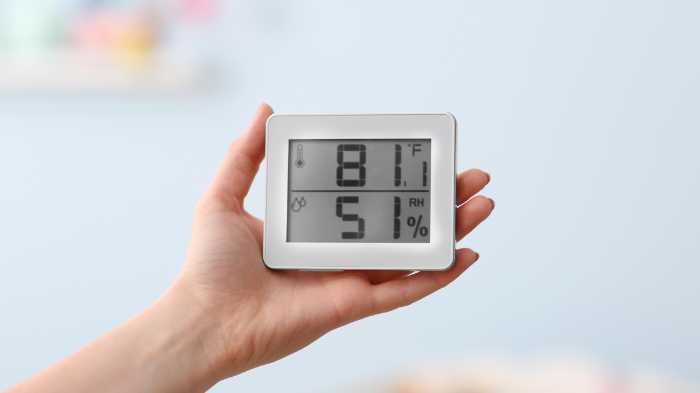Best Ways to Lower Humidity Levels in Your Basement
Apr 22, 2024
Best Ways to Lower Humidity Levels in Your Basement
Are you struggling with high humidity levels in your basement, making it feel damp and musty? Don’t worry; you’re not alone! Dealing with excess moisture in the basement can be a common issue for many homeowners. In this blog post, we’ll explore the best ways to lower humidity levels in your basement, from controlling interior moisture sources to preventing condensation and mold growth. By following these tips, you can create a drier, healthier environment in your home’s lowest level. Let’s dive in! Click here to learn more how Rescon Basement Solutions can help!
Best Ways to Lower Humidity Levels in Your Basement
Controlling Humidity from Inside the House is a crucial first step in reducing moisture levels in your basement. Ensure proper ventilation by using exhaust fans and opening windows when possible to allow fresh air circulation. Consider using a dehumidifier to remove excess moisture from the air, maintaining optimal humidity levels.
Controlling Exterior Moisture Sources is equally important in preventing water infiltration into your basement. Inspect gutters and downspouts regularly to ensure they are directing water away from the foundation. Properly grade the soil around your home’s perimeter to prevent rainwater from pooling near the foundation walls.
Preventing Humidity from Condensation involves insulating cold surfaces like pipes and ductwork to reduce condensation buildup. Use vapor barriers on walls and floors to prevent moisture migration into the basement space, helping maintain a dry environment.
Related Advice on Insulating Basements includes sealing any cracks or gaps in the foundation walls or floors that could be allowing moisture intrusion. Proper insulation can help regulate temperature fluctuations, reducing condensation and humidity levels in your basement for improved comfort and air quality. Click here to learn more how Rescon Basement Solutions can help!
Controlling Humidity from Inside the House
Controlling humidity levels in your basement is crucial for maintaining a healthy living environment. One effective way to tackle excess moisture indoors is by using a dehumidifier. These handy devices work by extracting moisture from the air, helping to create a drier space and reducing the risk of mold growth.
Another method to combat indoor humidity is through proper ventilation. Opening windows and running exhaust fans can help circulate fresh air and expel dampness. Additionally, utilizing air conditioning during hotter months can aid in lowering humidity levels inside the house.
Taking proactive measures such as fixing leaky pipes or faucets can also play a role in controlling indoor moisture. By addressing water issues promptly, you can prevent excess humidity from accumulating in your basement. Keeping household plants to a minimum can reduce excessive evaporation that adds to indoor humidity levels.
Controlling Exterior Moisture Sources
Controlling exterior moisture sources is crucial in lowering humidity levels in your basement. Start by inspecting the area around your home for any potential issues. Check for clogged gutters, damaged downspouts, or improper grading that could be causing water to seep into your basement. Addressing these issues can prevent excess moisture from entering your home.
Another important step is to ensure proper ventilation around the foundation of your house. Trim back any vegetation and bushes near the walls to allow air to circulate freely. This helps prevent dampness from building up against the exterior walls and seeping into the basement.
In addition, consider waterproofing the exterior of your foundation if necessary. Applying a sealant or membrane can help keep water out and reduce overall moisture levels in your basement. It’s a proactive measure that can save you headaches down the road.
Don’t forget about maintaining a good drainage system around your property. Properly functioning drains and sump pumps are essential in diverting water away from your home’s foundation, ultimately helping to control humidity levels in your basement.
Preventing Humidity from Condensation
Living in a humid climate can lead to condensation forming on basement walls and floors. This excess moisture can create the perfect environment for mold growth and musty odors. To prevent humidity from condensation, it’s essential to first identify any sources of moisture in your basement.
Proper ventilation is key to reducing condensation build-up. Ensure that your basement has adequate airflow by opening windows regularly or using exhaust fans. Dehumidifiers are also effective in removing excess moisture from the air, helping to keep humidity levels low.
Additionally, insulating cold surfaces such as pipes and walls can help prevent condensation from forming. By adding insulation, you create a barrier that helps regulate temperature and reduce the likelihood of moist conditions.
Regularly inspecting your basement for leaks or water intrusions is crucial in preventing condensation issues. Addressing any water-related problems promptly will help maintain a dry environment and lower humidity levels effectively. Click here to learn more how Rescon Basement Solutions can help!

